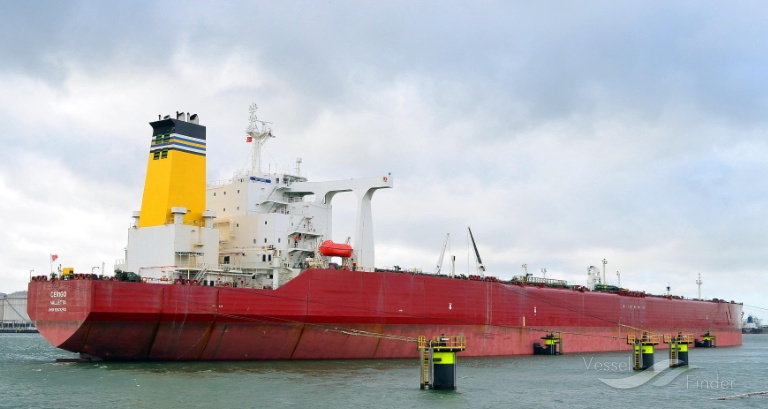Gambiaj.com – (BANJUL, The Gambia) – The Gambia’s presidency has summoned top government officials to a high-level meeting over mounting legal and ethical concerns surrounding a controversial contract between the Gambia Maritime Administration (GMA) and a Cypriot firm, MDIR Ltd., to outsource the country’s international ship registry.
According to a letter obtained by The Standard and signed by Alieu Loum on behalf of Chief of Staff Mod K Ceesay, the urgent stakeholder meeting is scheduled for Friday, 27 June, at the State House.
The invitees include the Director General of GMA, the Solicitor General, and Permanent Secretaries from the Ministries of Finance, Transport, and Infrastructure.
The letter cites a legal opinion from the Ministry of Justice that questions the validity, legality, and financial implications of the contract executed with MDIR. The meeting aims to assess these issues and explore appropriate remedies—including a possible renegotiation of the agreement, as recommended by the Ministry of Justice.
A Controversial Delegation of Sovereignty
Under the current agreement, MDIR Ltd. established a subsidiary—Gambia International Ship Registry (GISR)—to manage the registry under the Gambian flag.
The terms grant MDIR wide-ranging powers, including registering international ships (excluding those for local trade), issuing and revoking licenses and safety certificates, and representing The Gambia at the International Maritime Organization (IMO). It also allows MDIR to collect user fees on behalf of the Gambian state.
These terms, legal experts argue, effectively outsource a sovereign function—ship registration and representation at international forums—to a private foreign entity. A previous analysis by The Gambia Journal raised questions about the constitutionality of such an arrangement, particularly in the absence of clear legislative oversight or parliamentary ratification.
In early April of this year, The Gambia Journal raised the issue as the agreement coincided with a dramatic increase in vessels flying The Gambia’s flag.
The country’s registered fleet surged from having no tankers in 2023 to 35 oil and gas tankers by mid-March 2025. The total deadweight tonnage (DWT) jumped from 26,665 DWT at the end of 2023 to nearly 3.6 million DWT as of March 2025.
Nearly 99% of these tankers are under U.S., U.K., or E.U. sanctions or are involved in sanctioned oil and gas trades due to critical regulatory and safety concerns.
The sudden surge in vessels registered under The Gambia’s flag has raised red flags within the international community, prompting calls for further investigation into potential violations of sanctions and regulations.
When The Gambia Journal raised the issue, GMA’s response was fundamentally defensive and failed to meaningfully engage with the critical issues of regulatory oversight and vessel safety.
Rather than addressing the growing concerns over substandard vessels operating under the Gambian flag, the GMA chooses to attack The Gambia Journal‘s credibility and speculate about ulterior motives. Meanwhile, the significant increase in sanctioned tonnage and the systemic failures in regulatory oversight remain unaddressed.
The situation further escalated after revelations that Bintou Janneh, reportedly the daughter of GMA Director General Karamo Janneh, is serving as the regional manager of GISR in The Gambia.
While both the GMA and MDIR have yet to publicly respond to the nepotism allegations, the optics of the arrangement have deepened public skepticism over how the deal was structured and awarded.
Anti-corruption watchdogs and maritime industry observers have also flagged the possibility of insider influence in the selection of MDIR, raising the specter of conflict of interest and breach of public trust.
Ministry of Justice Raises the Alarm Over a Broader Governance Crisis
This week’s intervention by the Office of the Chief of Staff follows a pattern of delayed accountability. The Ministry of Justice’s legal opinion reportedly casts serious doubts on whether the contract aligns with national procurement laws, the GMA Act, and international best practices in public-private partnerships.
Officials familiar with the opinion say it warns of possible future liabilities for the Gambian state if the contract is not urgently reviewed.
Notably, the Gambia Ports Authority (GPA) was neither consulted nor involved in the contract negotiation, despite its vested interest in maritime matters—a gap that reflects wider institutional dysfunction in the handling of the deal.
The controversy is emblematic of deeper governance challenges in The Gambia’s public administration, where transparency and accountability mechanisms are often bypassed. This is not the first time maritime contracts have raised eyebrows: the GMA has previously faced scrutiny over opaque procurement and management practices.
That’s why the outcome of Friday’s meeting will be critical in shaping the government’s response. While renegotiation has been suggested, legal experts argue that a complete annulment of the contract may be necessary if evidence of procedural irregularities and conflict of interest is confirmed.
At stake is not just the integrity of a single maritime contract, but the credibility of the state’s ability to manage its sovereign resources in the public interest. The presidency’s intervention may signal a growing awareness of the political costs of inaction, but whether it leads to real accountability remains to be seen.










